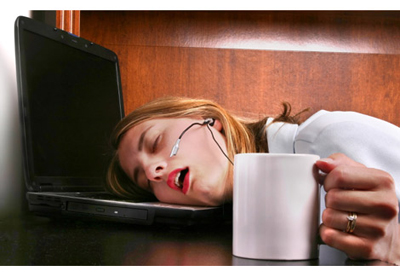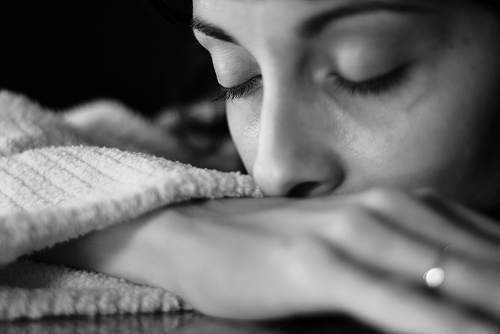Shakespeare described Sleep as life’s ‘Chief Nourisher’ when he wrote:
“Not poppy, nor mandragora, nor all the drowsy syrups of the world, shall ever medicine thee, to that sweet sleep which thou owedst yesterday.”
Many people are surprised but relieved to hear the statement “My first aim is getting you to have a good night’s sleep”. That is because, as Shakespeare said, sleep is the essence of our body, mind, soul, and life. And nothing can replace a good night’s sleep.
Circadian rhythms are our internal ‘body clocks’ and this is how as humans we adapt to the 24-hour cycles of light and dark. Our body clocks dictate that adults have one major episode of sleep at night that typically lasts for about 8 hours per night (ranging from 6-9). Each person has a different tolerance range for sleep that changes as we grow older, and must be reviewed on a regular basis. By following a few simple rules, the amount of required sleep for each person can be determined. If you feel rested in the morning and alert throughout the day then you are achieving an adequate amount of sleep. If no amount of sleep can make you feel rested and alert, then you should seek medical advice that includes being evaluated for a sleep disorder.
Lifestyle factors, diet, illness, pain, and poor sleep habits (referred to as hygiene) are among the most common problems encountered in our society today with regard to sleep quantity and quality. We interrupt our sleep patterns with drugs, chemicals, and work, and we over-stimulate ourselves with activities late at night such as watching television, and using computers, laptops, ipads, and mobile phones.
It is important to understand that we cannot “catch up” on lost sleep, nor can we store sleep for the future. Research shows that people tend to sleep about 30 minutes longer on weekends indicating a ‘sleep debt’ during the week. Lost sleep on any night has immediate consequences for the next day such as loss of concentration, poor work or study performance, and poor memory. Chronic long-term sleep loss can also result in developing or worsening depression.
Pain & Sleep
Insomnia, sleep deprivation, and interrupted sleep cycles are a significant problem for many pain sufferers. A night of poor sleep is often followed by a significantly more painful day, and a painful day is more often than not, followed by a night of poorer sleep. This constant cycle of pain and impaired sleep can often lead to mental distress including anxiety, mood changes and depression.
Poor sleep quality accounts for a positive relationship between pain and fatigue, whilst disrupted sleep is considered to be an important factor in the development of symptoms in musculoskeletal disorders such as Fibromyalgia. For any patient in pain, Sleep Hygiene is a significant and very important aspect of their condition that can play a major role in coping, recovery, and remission.
Sleep Hygiene
The key to realising good sleep hygiene is to make the bedroom or regular sleeping area a place that the brain associates with “rest”, “relaxation”, and “recovery”. Therefore, the sleeping area should immediately bring on a sense of calm.
Mobile Phones
It is extraordinary how many people now sleep with a mobile phone on their bedside table. Studies have shown that mobile phones can significantly affect a person’s quality of sleep in several ways:
- Electromagnetic fields (EMF) – mobile phones are constantly sending out send and receive signals when connecting to a network. This EMF affects the deep slow wave sleep cycle and causes an increase in cortical (brain) arousals.
- Emails and SMS – noises of receiving emails and SMS also cause an increase in arousals despite the person not being aware it is happening.
- People who constantly receive emails and SMS throughout the day and are ‘addicted’ to this form of communication, develop a sleep cycle that is very similar to a mother with a new born baby. That is, they stop achieving deep sleep because they are subconsciously ‘listening out’ for the familiar noise from their phone.
The best thing people can do for their sleep is to take their phone out of the bedroom, or turn it off completely. If a phone is used for an alarm, buy an alarm clock (yes you can still get them), or put the phone far out of reach over the other side of the room. This will then also make you get up to the alarm.
At all times, phones in bedrooms during the night should also be turned to ‘flight mode’ to stop EMF. If your phone does not have flight mode, then it definitely should be turned off.
Fix a regular bedtime.
The body gets used to falling asleep and waking at regular times according to our body clocks. By keeping the time you go to sleep reasonably constant, you will fall asleep faster and wake at the same time each morning. Our circadian rhythm functions by light and dark cycles and therefore an ideal sleep time is 10pm – 6am give or take ½ an hour either way so a full 8 hours of sleep is achieved each night. Even if you are retired or not working, this is an essential component of good sleeping habits.
Avoid napping during the day.
If you nap throughout the day, falling asleep at night is often much more difficult. However, if you need a nap, your body is telling you to rest. Try to limit the nap to 30–45 minutes in the late afternoon (3 – 4 pm) so that you will still sleep well at night.
Avoid alcohol 4 hours before bedtime.
Many people believe that alcohol helps them sleep. While alcohol has an immediate sleep-inducing effect, a few hours later as the alcohol levels in your blood start to fall, there is a stimulant or wake-up effect.
Avoid caffeine and smoking 4-6 hours before bedtime.
So many people will say “A coffee / cigarette before bed has no effect on me”. Whilst these same people may be able to immediately ‘fall asleep’, caffeine and nicotine are stimulants. Typical sleep patterns are disrupted, deep slow wave sleep is not achieved, and arousals from sleep increase, and these all lead to poor sleep quality. This includes caffeinated beverages such as coffee, tea and many sodas, as well as chocolate. By simply reducing these stimulants so that no caffeine or nicotine is consumed after 3 – 4pm, sleep ‘quality’ is significantly improved.
Exercise regularly, but not right before bed.
Regular exercise, particularly in the afternoon, can help deepen sleep and encourage a sleep routine. Strenuous exercise within the 2 hours before bedtime, however, can decrease your ability to fall asleep as the body is still wide awake.
Relaxation techniques. Techniques such as yoga, deep and diaphragmatic breathing, and meditation may help relieve anxiety, aid the mind in ‘switching off’ and reduce muscle tension. For further tips on exercise, please see our sections Health and Well Being and Latest News for advice and feature articles.
Don’t take your worries into the bedroom.
The bedroom is not a place to discuss or think about life events that evoke anxiety such as worries about job, school, finances, relationships, etc. Discuss and think of all of these things before you enter the bedroom so there is a sense of calm when entering the bedroom and attempting to go to sleep. If you wake up at night thinking of things, keep a note pad and pen on the bedside table and quickly jot down what you need to do the next day or think of. Many people find this simple task then allows them to easily fall asleep again as they do not need to worry about forgetting things.
 Do not go to bed hungry.
Do not go to bed hungry.
Hunger will disrupt sleep patterns. Eat a healthy snack before bed if you are hungry. Warm milk or herbal tea (caffeine free) and foods high in the amino acid Tryptophan such as bananas can help induce sleep. Avoid heavy, fatty, and spicy foods.
Establish a pre-sleep routine.
Pre-sleep routines such as a warm bath, a foot rub, very light stretching, or a few minutes of reading in low light can help induce sleep. It is important that people find something that works for them, as everyone has different ways to relax. Use a comfortable bed and bedding. An uncomfortable mattress or pillows can prevent good sleep. If you regularly wake up uncomfortable, consider replacing your bedding. Keep the bedroom well ventilated and the temperature set correctly. If your bedroom is too cold or too hot, it can keep you awake. A cool (not cold) bedroom is often the most conducive to sleep.
Block out and eliminate as much noise and light as possible.
Reserve the bedroom or sleeping area for sleep and rest only. The bedroom is not an office, workshop, or conference area. If you must have a study area in the bedroom, keep the bed and immediate area free from books and clutter. Let your body “know” that the bed is associated with sleeping.
Television is like caffeine and nicotine.
It is a stimulating and very engaging activity. Many people fall asleep with the television on in their bedroom and swear that it does not affect their sleep patterns. Prior to going to bed, the television should be switched off and not located in the bedroom so the brain has time to prepare itself for sleep. Television and computers also cause a significant increase in sleep arousals during the night. That is, the brain is constantly woken from sleep many times an hour due to noise and electromagnetic fields coming from electronic equipment including mobile phones.
Waking Up in the Middle of the Night.
For many various reasons, most people will wake 1 or 2 times in the middle of the night. If you cannot get back to sleep ‘within 15-20 minutes’, do not get upset or angry about it, and do not lay there in bed trying ‘really hard to fall asleep’. Get up out of bed and go and sit quietly in another room, read in dim light, have a light healthy snack if hungry, take a bath, or do some other quiet and relaxing activity. Generally, you will feel sleepy again quickly by doing this and you should go back to bed within 15 minutes or so. DO NOT watch television, do the housework, turn on the computer, or do any other task that is engaging or challenging mentally or physically, and do not stay up for an hour or more waiting until you are ‘really sleepy’.
Medications can often cause insomnia and sleep difficulties as a side effect. If any medications are taken within 4 hours of going to bed, you should consult with your doctor to assess if these are contributing to your sleep problems. Often, other medications can be substituted that do not cause insomnia or they can be taken earlier in the day.
Depression, anxiety, and stress are often associated with sleeping difficulty. In many cases, difficulty falling asleep or difficulty staying asleep may be the only presenting sign. A doctor should be consulted if you feel that you may have depression, anxiety, or stress that is continuing to affect your sleep patterns. Sleep medications can be prescribed in certain cases for assistance with short-term relief of a sleep problem. However, the cause of the sleep problem needs to be addressed at the same time.
The role of quality sleep in our lives cannot be over-estimated and often we just do not allow ourselves enough rest and our bodies to recover from daily tasks. By following a few of these simple guidelines even if you think you sleep well each night, you will wake more refreshed, alert, active, and alive each day.
And in some people, it may just SAVE your life.


